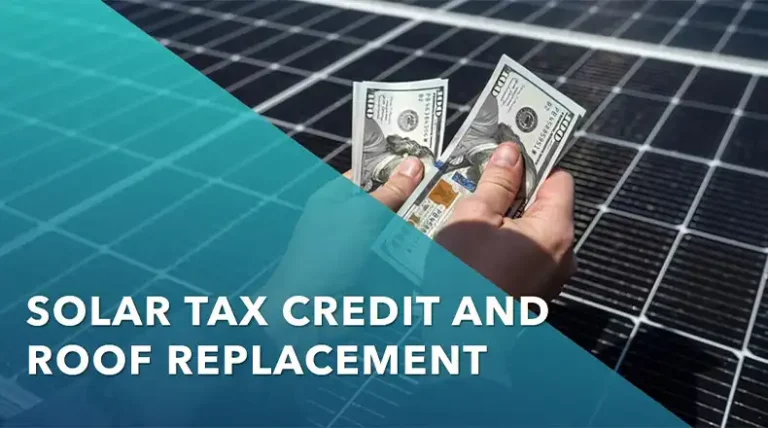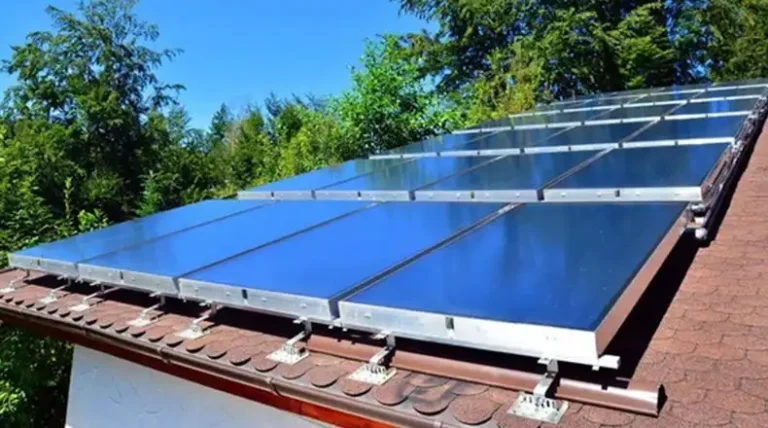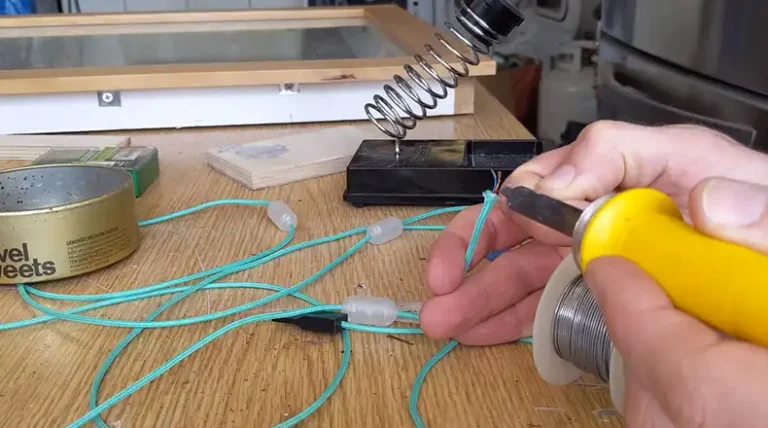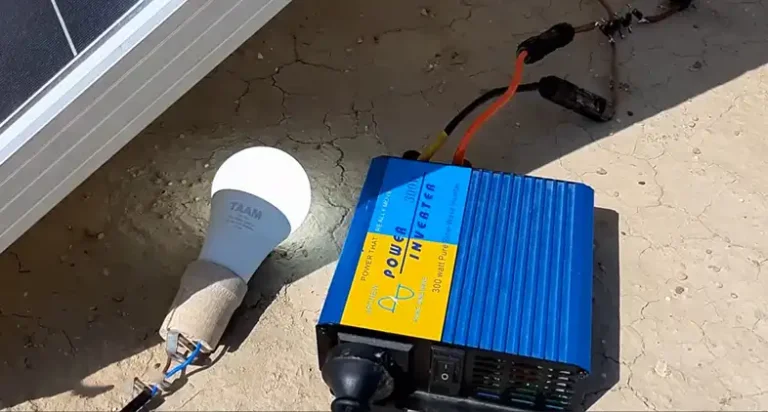Solar Loan vs Solar Lease | Key Differences
The upfront cost of purchasing and installing a solar panel system can be prohibitive for many homeowners. To make solar more accessible, two popular financing options have emerged – solar loans and solar leases. But what is the difference between these two options and which one is better for homeowners?
A solar loan allows you to borrow money to pay for the system, which you then own. With a solar lease, a solar company installs and owns the system while you pay them monthly lease payments to use it. Both options have their pros and cons.
In this guide, you will explore solar loans versus solar leases in detail as I have explained how they work, their costs, benefits, eligibility requirements, and more. Reading through this detailed comparison will allow you to make an informed decision on solar financing for your home.
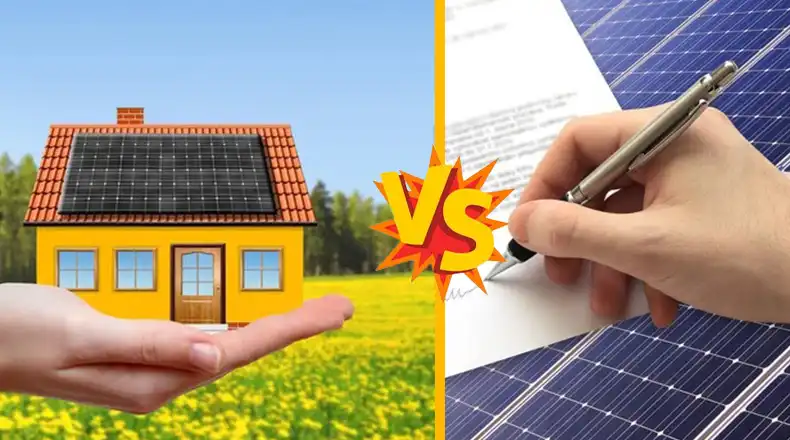
How Do Solar Loans Work?
A solar loan allows homeowners to borrow money specifically to pay for the purchase and installation of a solar photovoltaic (PV) system on their property. The borrowed amount covers the full upfront cost of the solar panels, inverters, racking equipment, and any other hardware needed.
Once the solar loan is approved and system installation is completed, you immediately own the solar panel system since you financed the purchase of it via the loan. This is a critical distinction from a solar lease (explained later).
You repay the solar loan in regular monthly installments over a fixed time period, normally 10-20 years depending on the loan terms. This is very similar to paying back a mortgage or auto loan over time.
Importantly, the newly installed solar panels on your roof serve as collateral for the loan. They are attached to your home until the loan is fully repaid.
Because you own the solar system outright, you get to keep all the financial benefits it provides. This includes utility bill savings from lower electricity costs, any tax credits, solar renewable energy certificates (SRECs) or other incentives in your area, and increased home value from having the rooftop solar system.
You are also responsible for maintenance, repairs, insurance, and any other costs associated with the solar panels since you own them. The system’s warranties may cover certain repairs depending on the terms.
Solar Loan Costs and Fees
The main costs of a solar loan include:
- Interest rate – The interest charged on the loan. Rates for solar loans often range from 3-8%. Your credit score affects the rate offered.
- Origination fee – A one-time fee to initiate the loan, typically around 1% of the loan amount.
- Loan term – The longer the repayment term, the lower your monthly costs but the more interest paid over time.
- Property assessment – Lenders may charge $100-$250 to assess your home’s value if using your property as loan collateral.
- Down payment – Some lenders require 10-20% down on the system’s costs.
- Credit check fee – Lenders will check your credit, often charging around $50.
Always compare interest rates and fees from multiple lenders. Banks, credit unions, and online lenders offer solar loans. The best rates go to borrowers with good credit scores above 680.
Solar Loan Eligibility and Qualification
Since solar loans are secured debt against your home, you must meet certain eligibility criteria:
- Homeownership – You must own your home to use it as collateral. Solar loans are not available for renters.
- Credit score – A minimum credit score ranging from 580-700 is required, depending on the lender. The better your credit, the lower the interest rate.
- Debt-to-income ratio – Lenders require a maximum debt-to-income ratio, often around 50%.
- Home equity – You must have sufficient equity in your home, often at least 15-20% to qualify and receive competitive rates.
- No liens – Your home title must be lien-free. Any other loans using your home as collateral make qualification difficult.
As long as you meet the lender’s eligibility criteria, you can receive loan approval in as fast as 1-3 days. Then you can proceed with installing the solar panels.
How Do Solar Leases Work?
A solar lease, also known as a solar PPA (power purchase agreement), provides an alternative financing option that allows homeowners to install rooftop solar panels with minimal to zero upfront costs, while a solar company retains ownership of the system and handles maintenance.
With a solar lease, a solar installation company owns and installs the solar panel system on your home’s roof at no upfront cost to you. This avoids the high installation costs of purchasing a system.
Instead, you sign a long-term contract with the solar company, typically for a period of 15-25 years. This contract functions as a solar lease agreement where you commit to making monthly payments to the company in exchange for getting the benefits of their solar panels on your home.
The monthly solar lease payment you make to the company will always be less than what you would normally pay your electric utility provider for that amount of electricity. So it offsets your normal electric bill while allowing you to go solar.
Importantly, the solar company that owns the rooftop system also handles maintenance, repairs, insurance claims, operations and any other responsibilities for the solar panels since they are the owner.
If you sell your home to a new owner before the solar lease term expires, the new homeowners have the option of taking over the remaining lease payments to keep the panels active. The solar panels stay with the home.
Costs of Solar Panel Leases
With a $0 down solar lease, you avoid all installation costs. However, there are still recurring costs in the form of:
- Monthly lease payment – This fixed monthly payment to the solar company is based on how much electricity the panels produce. It’s lower than your current utility rate.
- Production guarantee – Most leases guarantee a certain solar energy production level. If the system underperforms, you may get lease payment credits.
- Escalator clause – Your lease payment typically rises 2-3% annually to account for inflation.
- Home sale clause – Selling your home often incurs a transfer payment fee around $1000 if the new owners take over the lease.
- End of lease terms – At the end of the lease, you may have to pay to remove panels or do a buyout to keep them.
Always read the fine print! While enticing at first, solar lease costs can really add up long-term.
Solar Lease Eligibility
Since solar leases don’t involve loans or home equity, the eligibility requirements are less restrictive:
- Credit score – Most companies require a minimum credit score of around 640. Better credit means lower lease payments.
- Homeownership – You must own your home. Leasing is not available for renters.
- No shading – Your home cannot have excessive shading to be suitable for solar.
- Roof condition – Your roof must be in good shape without needing repairs.
- Electric bill – Your monthly electric costs should be high enough for savings from solar.
As long as you meet these criteria, you can get a solar lease approved without needing to qualify for financing or loans. The ease of qualification is a major draw for homeowners.
Key Differences Between Solar Loans and Leases
Now that we have explained how solar loans and leases work, let’s outline some of the major differences between the two financing options:
| Solar Loan | Solar Lease | |
| System Ownership | You own the solar panel system once the loan is repaid. | The solar company retains ownership of the equipment. |
| Upfront Costs | Requires substantial upfront investment, typically 15-25% of system cost. | $0 down with no upfront installation payment. |
| Contract Length | 10-20 year loan repayment term until the loan is fully paid off. | 15-25 year contract length to lease the solar system. |
| Monthly Payments | Fixed monthly loan repayment amount. | Ongoing monthly lease payments to the solar company. |
| Tax Credits & Incentives | You receive any tax credits and solar incentives. | The solar company gets any tax credits and incentives. |
| Maintenance | You are responsible for solar system maintenance and repairs. | The solar company handles maintenance and repairs. |
| Electricity Savings | You keep all the utility savings from solar energy generation. | The lease payment is lower than your current electric bill but offsets much of the savings. |
| Eligibility Requirements | More stringent financing eligibility requirements. | Minimal eligibility requirements make approval easier. |
| Home Sale | The loan obligation transfers to new homeowners. | New homeowners can take over lease payments but fees often apply. |
| End of Term | You own the system forever once the loan is paid off. | Uncertainty about system removal or buyout fees when the lease ends. |
As shown above, the key differences center around solar loans providing greater long-term ownership, financial benefits, and certainty, while solar leases offer simplicity and minimal upfront costs due to the leased equipment model.
Pros and Cons of Solar Loans vs Leases
Weighing the advantages and disadvantages helps determine if a solar loan or lease is the better choice:
Solar Loan Benefits
- Own the solar system and get a full financial return
- Keep all tax credits, incentives, and electricity savings
- Fixed monthly loan payment and predictable costs
- Increase your home’s value since you own the system
- No end-of-lease worries about panel removal or buyout fees
Solar Loan Drawbacks
- High upfront payment of 15-25% of system cost
- Lengthy loan repayment term with interest charges
- Must meet credit score and home equity requirements
- Responsible for operation, maintenance, and repair costs
Solar Lease Pros
- $0 down with no upfront installation costs
- Lower ongoing payments than current electric bills
- Easy instant approval with minimal eligibility requirements
- The solar company handles system maintenance and repairs
- No concerns about system operation or warranty
Solar Lease Cons
- Do not own the solar system or get the full financial benefit
- Electricity bill savings offset by lease payments
- Contracts lock you in for 15-25 years
- Monthly payments increase 2-3% annually
- Fees and hassles for new homeowners to take over
- Unsure system ownership status at end of lease
Overall, solar loans provide more long-term financial benefits and system ownership, while solar leases offer simplicity and minimal upfront costs. You need to weigh the pros and cons based on your financial situation and solar goals.
Solar Loan vs Lease: Financial Projections
Crunching the numbers can provide further clarity on which solar financing option offers the most cost-effective path over the full lifespan:
Let’s compare 25-year financial projections for a 5 kW solar system installation with estimated cost of $15,000 for both financing options:
Solar Loan
- System Cost: $15,000
- Down Payment: $3000 (20% of $15,000)
- Loan Amount: $12,000
- Interest Rate: 4.5%
- Loan Term: 25 years
- Monthly Payment: $63
- Total Interest Paid: $8,700
- Lifetime Electricity Savings: $41,850
- Net Lifetime Cost: $3,850
Solar Lease
- $0 down payment
- Monthly Lease Payment: $100
- Annual Escalator: 2.5%
- Total 25 Year Lease Payments: $41,250
- Fees/Buyout Costs: $1000
- Lifetime Electricity Savings: $27,900
- Net Lifetime Cost: $14,350
These projections illustrate that choosing the solar loan option provides over $10,500 greater net lifetime savings compared to the solar lease. This is because you own the asset rather than renting it.
Of course, homeowners who prioritize simplicity and minimal upfront payment may still prefer a $0 down solar lease even if it costs more over the long run. But for most homeowners, the solar loan is the more financially optimal choice.
Choosing the Right Solar Financing Option
Deciding between a solar loan or lease depends primarily on your financial situation, solar goals, and personal preferences.
When a Solar Loan Makes Sense
- You want to own your system and maximize financial return
- You have home equity and a strong credit score
- You can afford 20% or more down payment
- You plan to live in your home long-term
When a Solar Lease is Preferable
- You want zero down instant installation with no hassle
- You don’t have sufficient home equity or credit score
- Minimal eligibility requirements work in your favor
- You may move soon and don’t need ownership
Meeting with multiple solar companies to discuss your options, and consulting with a financial advisor can provide further guidance. Don’t rush into signing a lengthy lease or loan agreement without understanding the full implications.
Randomly Asked Questions
Can I Get Out Of A Solar Lease If I Need To Move?
You can transfer your solar lease obligations to the new homeowners purchasing your home. However, lease termination or transfer fees often apply. The new owners must agree to take over the remaining lease payments.
What Credit Score Do I Need For A Solar Loan?
Most lenders require a minimum credit score between 580 and 700 to qualify for a solar loan. Interest rates drop when your credit score is over 720. An excellent credit score can help you get the best loan terms.
How Much Can I Borrow For A Solar Loan?
Most lenders approve solar loans up to $40,000 for a residential solar system. Borrowing more increases interest rates. Putting down at least 20% of the system cost is recommended to get favorable loan terms.
Can I Deduct Solar Lease Payments From My Taxes?
No. Since solar companies own the leased systems, they get tax credits and depreciation benefits. You cannot deduct monthly solar lease payments.
What Are The Penalties For Paying Off A Solar Loan Early?
Most solar loans don’t charge prepayment penalties for early payoffs. Paying your loan faster minimizes interest charges saving you money over the loan term.



